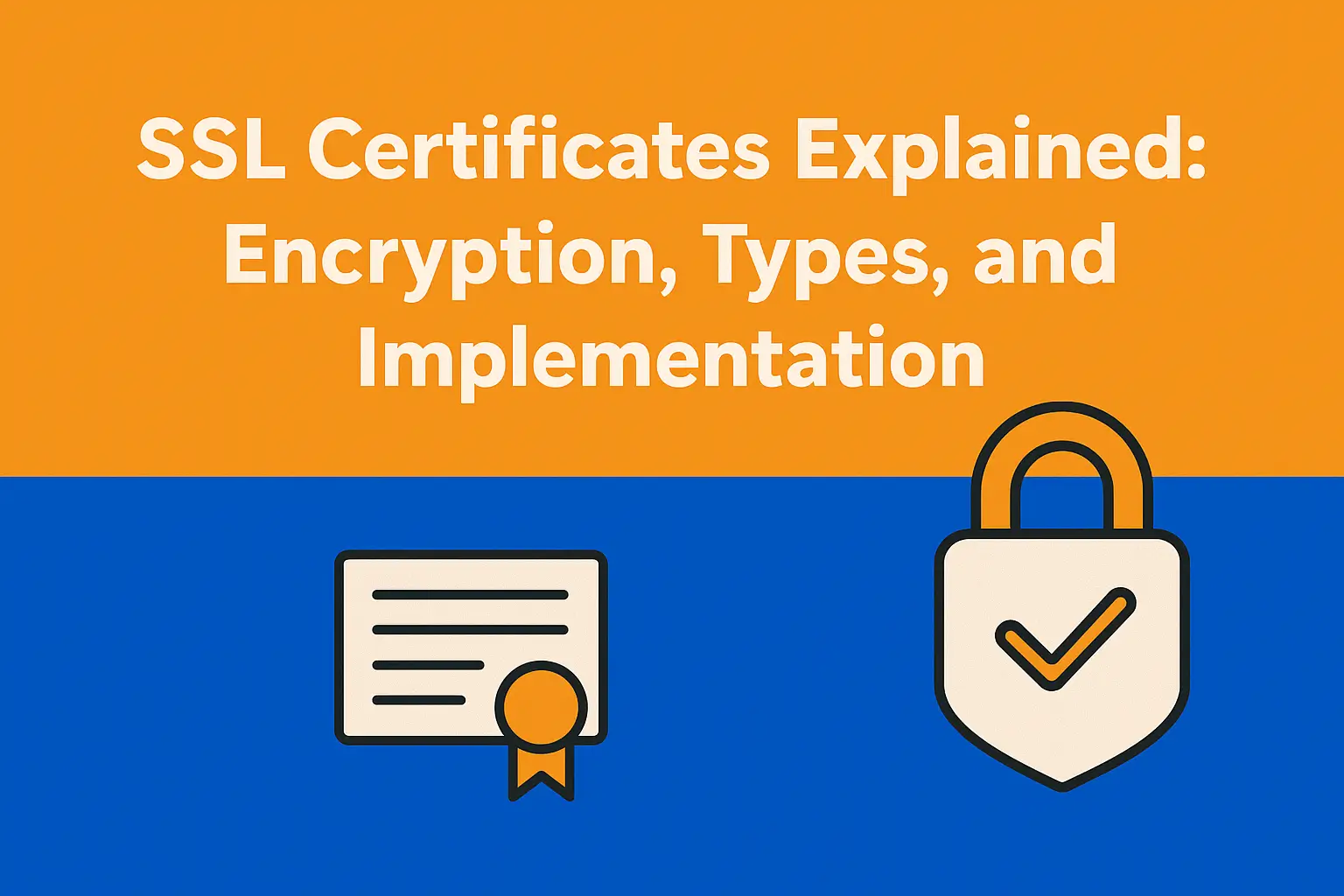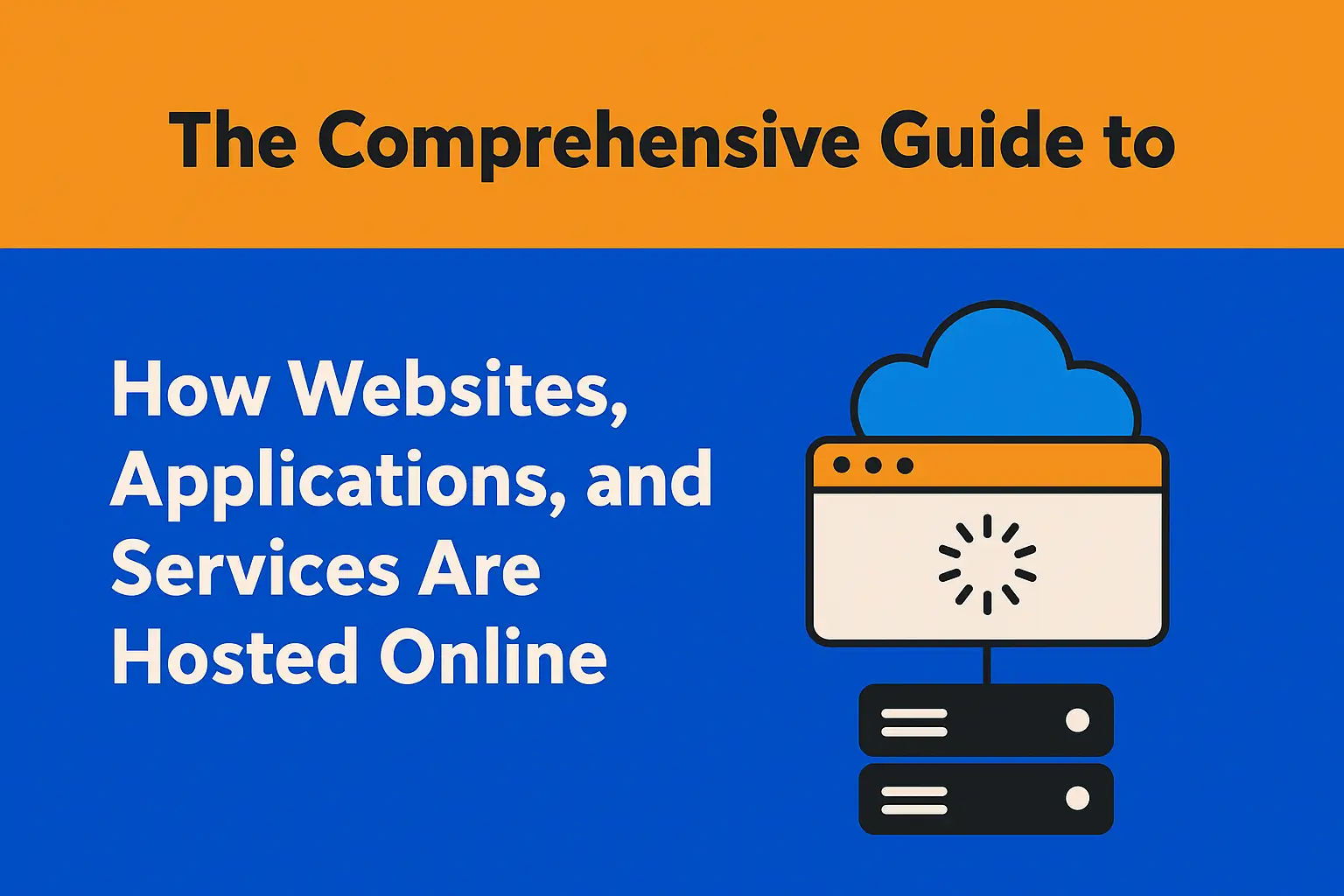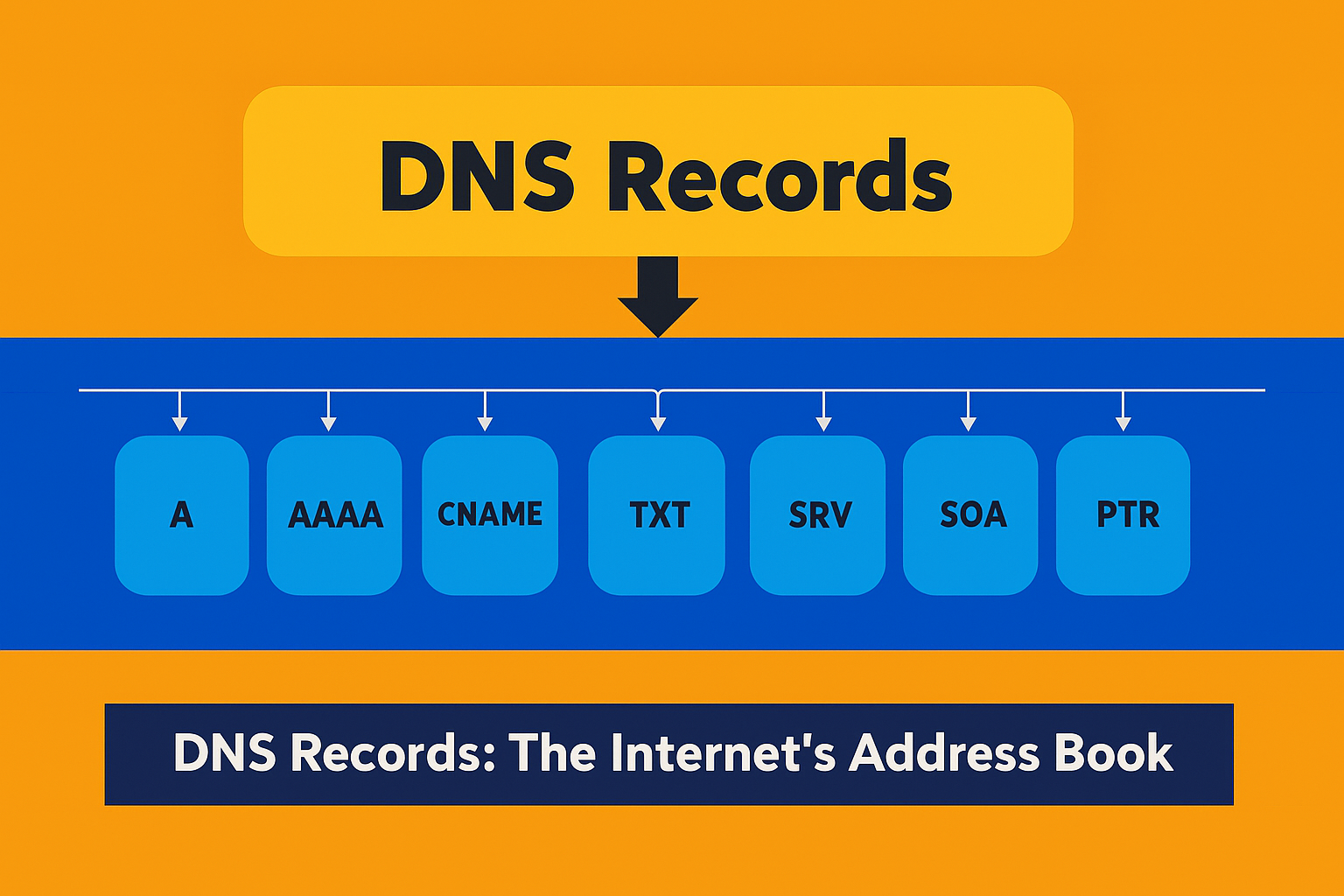
Introduction to Website Hosting
Website hosting is an essential component of the online world, serving as the backbone that supports every website. In simple terms, web hosting is a service that enables individuals and organizations to make their websites accessible via the World Wide Web. By renting space on a physical server, which is owned and operated by a hosting provider, your website files, including HTML, CSS, images, and videos, are stored and maintained, allowing users to access your site seamlessly.
The importance of selecting the appropriate web hosting cannot be overstated. Different hosting configurations are designed to cater to varying levels of traffic, security, and customization needs. Understanding the types of hosting services available is the first step in making an informed decision:
Shared Hosting: This is the most cost-effective solution, where multiple websites share the same server resources. While economical, shared hosting can lead to slower load times and reduced performance if other websites on the server demand excessive resources.
Virtual Private Server (VPS) Hosting: VPS hosting bridges the gap between shared and dedicated hosting. It partitions a physical server into multiple virtual servers, providing more resources and greater control compared to shared hosting. This setup is suitable for websites that require more robust performance and custom server configurations.
Dedicated Hosting: Offering exclusive access to an entire server, dedicated hosting ensures superior performance, security, and flexibility. This option is ideal for websites with high traffic volumes or those needing bespoke server setups to handle specific applications and intensive workloads.
Cloud Hosting: Leveraging the power of multiple interconnected servers, cloud hosting provides scalability and reliability. Resources can be dynamically allocated as needed, making it a versatile solution for growing websites with fluctuating traffic patterns.
Choosing the right hosting service directly impacts your website’s overall performance, user experience, and security. An informed decision will help you avoid common pitfalls, such as slow site speeds, downtime, and security vulnerabilities. As we delve deeper into this guide, you will gain comprehensive insights into the factors that should influence your hosting choice, ensuring your website runs efficiently and securely.
Understanding Your Website Needs
Before choosing a hosting plan, it is imperative to comprehensively understand your website’s specific needs. This evaluation is foundational to align the hosting service with your requirements effectively. The type of website you intend to create is a pivotal factor. For instance, an e-commerce site necessitates robust security features and stable performance to handle transactions, while a personal blog might have more lenient requirements.
Expected traffic volume also plays a critical role in your decision-making process. Websites anticipating high traffic should opt for hosting plans that offer significant bandwidth to ensure seamless user experiences. Conversely, a portfolio with moderate visitor numbers would function optimally on a more modest plan without excessive costs.
Storage space is another crucial consideration. E-commerce sites with a vast array of products, high-resolution images, and videos will demand substantial storage. Conversely, a static website with minimal media content requires considerably less space. It’s important to foresee the storage needs to avoid future scalability issues.
Bandwidth requirements should not be underestimated. Higher bandwidth allows for more data transfer between your site and its visitors, reducing load times and preventing potential site crashes during traffic spikes. This aspect is particularly important for sites hosting large files or expecting frequent high-traffic periods.
Finally, consider any special software or scripting needs. Certain web applications or programming environments may require specific server configurations or compatible hosting plans. Ensure the chosen hosting service supports these technical specifications to facilitate smooth website operations.
In essence, a thorough analysis of your website’s goals and specifications, including type, expected traffic, storage, and technical needs, is critical in selecting the appropriate hosting plan. Understanding these fundamental attributes will guide you in making an informed, beneficial choice.
Exploring Different Types of Web Hosting
When it comes to selecting the appropriate hosting solution for your website, understanding the various options available is crucial. The main types of web hosting include shared hosting, VPS hosting, dedicated hosting, and cloud hosting. Each type has its own unique features, benefits, and drawbacks, making them suitable for different kinds of websites and user needs.
Shared Hosting
Shared hosting is a popular choice for beginners and small businesses due to its affordability. In shared hosting, multiple websites are hosted on a single server, sharing resources such as CPU, RAM, and disk space. This makes it cost-effective but also means that performance can be affected if other sites on the server experience high traffic. Shared hosting is ideal for low-traffic websites, personal blogs, and small business websites with limited resource demands.
VPS Hosting
VPS (Virtual Private Server) hosting offers a middle ground between shared and dedicated hosting. In this setup, a single physical server is partitioned into multiple virtual servers, each with its own resources and operating system. This allows for greater customization and improved performance compared to shared hosting. VPS hosting is suitable for medium-sized businesses, e-commerce sites, and developers needing more control and flexibility. However, it does come at a higher cost than shared hosting.
Dedicated Hosting
Dedicated hosting involves renting an entire physical server exclusively for your website. This offers the highest level of performance, security, and control, as you do not share resources with any other sites. Dedicated hosting is an excellent choice for large businesses, high-traffic websites, and sites requiring extensive resources. The main downside is the cost, which is significantly higher than shared or VPS hosting. Additionally, managing a dedicated server often requires technical expertise.
Cloud Hosting
Cloud hosting leverages a network of interconnected servers to host websites, ensuring high availability and scalability. Instead of relying on a single server, cloud hosting distributes the load across multiple servers, reducing the risk of downtime and improving reliability. This makes it perfect for rapidly growing businesses, high-traffic websites, and applications requiring consistent performance. Although it is more expensive than shared and VPS hosting, the flexibility and scalability often justify the investment.
Understanding these different types of web hosting is essential for making an informed decision. Each option has its own advantages and limitations, making them suitable for various use cases and audience needs.
Evaluating Hosting Providers
When choosing a web hosting provider, several critical factors must be considered to ensure that your website operates smoothly and reliably. One of the most important aspects is reliability and uptime guarantees. It is essential to select a provider that offers a strong uptime guarantee, ideally 99.9% or higher. This assurance minimizes the risk of downtime, which can negatively impact your website’s accessibility and user experience.
Customer support quality is another crucial factor. Reliable hosting providers offer 24/7 customer support with multiple channels of communication, such as live chat, phone support, and email. Comprehensive support can be invaluable, especially in emergencies when quick resolutions are needed to prevent extended downtime.
Pricing and plans should also be examined carefully. Different hosting providers offer a variety of pricing structures and plans. Understanding your specific needs will help you choose the most cost-effective solution. Pay close attention to what’s included in each plan, such as bandwidth, storage, and any additional features like free SSL certificates or domain registration.
Scalability is vital for future growth. As your website evolves, your hosting needs may change. A hosting provider that allows easy plan upgrades and resource allocation ensures that you won’t outgrow your hosting solution. Look for providers offering scalable options that can adapt to your website’s growth seamlessly.
Security features are paramount in the modern digital landscape. Opt for providers that prioritize security by offering features like malware scanning, DDoS protection, firewall protection, and regular backups. Ensuring that your hosting provider has robust security measures can protect your data and maintain your website’s integrity.
Lastly, consider the provider’s reputation and reviews. Conducting thorough research and reading user testimonials can provide insights into the experiences of other customers. This due diligence can help you gauge the reliability and trustworthiness of the provider, aiding you in making an informed decision.
Comparing Top Hosting Providers
Choosing the right hosting provider is a critical decision that can significantly impact your website’s performance, security, and user experience. Several leading web hosting providers dominate the industry, each offering a unique set of features, pricing models, and additional services.
Among the top contenders are Bluehost, SiteGround, A2 Hosting, and HostGator. Each provider has carved a niche with distinctive offerings tailored to various needs. Bluehost is often lauded for its user-friendly interface and robust customer support, making it an excellent choice for beginners and small businesses. Their plans start at a competitive price of $2.95 per month, including a free domain for the first year, SSL certificate, and 24/7 support.
SiteGround, on the other hand, is recognized for its exceptional performance and top-notch security features. Their shared hosting plans start at $3.99 per month, providing daily backups, managed WordPress hosting, and advanced security solutions. SiteGround’s reliable uptime and customer service make it ideal for businesses that prioritize site stability and security.
A2 Hosting stands out with its focus on speed and performance optimization. With plans starting at $2.99 per month, A2 Hosting offers Turbo plans that promise up to 20x faster load times. This provider is a strong candidate for high-traffic sites seeking to ensure quick and efficient user experiences. Additionally, they include features like SSD storage and free site migrations.
HostGator is known for its versatile hosting solutions and excellent scalability options, making it particularly suitable for growing businesses. Starting at $2.75 per month, HostGator provides unmetered bandwidth, free site transfers, and a user-friendly website builder. Their extensive range of services includes VPS and dedicated hosting, catering to more demanding website needs.
For small businesses, Bluehost offers an all-encompassing package that balances affordability with essential features. High-traffic sites would benefit from A2 Hosting’s speed-enhanced plans, while SiteGround’s security and performance strengths cater well to those prioritizing reliability. HostGator remains a versatile option for scalable growth.
In conclusion, each hosting provider offers unique advantages tailored to different requirements. By evaluating your website’s specific needs against these leading providers’ strengths and offerings, you can make an informed decision that ensures optimal performance and growth for your website.
Ensuring Security and Backups
When choosing a web hosting provider, security and backups are paramount considerations. In an era where cyber threats are increasingly sophisticated, it is essential to select a hosting service that prioritizes comprehensive security measures. One fundamental security feature to look for is an SSL (Secure Sockets Layer) certificate. SSL certificates encrypt data transmitted between the user’s browser and your server, thereby preventing unauthorized interception.
DDoS (Distributed Denial of Service) protection is another critical component. DDoS attacks aim to overwhelm your server with a flood of traffic, causing your website to crash. A hosting provider with robust DDoS protection will have mechanisms in place to detect and mitigate such attacks, ensuring minimal disruption to your services.
Furthermore, continuous malware scanning is indispensable. This involves regularly scanning for any malicious software that could compromise your website. The presence of firewalls, which serve as a barrier between your server and potential threats, adds an additional layer of defense. By actively monitoring and filtering out suspicious activities, firewalls help maintain your website’s integrity.
Equally important are regular backups. Despite all security measures, breaches can still occur. In such instances, having reliable backups ensures that your data can be restored swiftly, minimizing downtime and data loss. Ideally, your hosting provider should offer automated backup solutions with easy restore options.
To ensure robust security protocols, review the hosting provider’s security certifications and compliance with industry standards. A reputable provider will often be transparent about its security measures. Look for features such as two-factor authentication, security patch updates, and proactive threat management.
By thoroughly evaluating these aspects, you can select a hosting provider that not only protects your data but also provides peace of mind, knowing that your website is safeguarded against a myriad of cyber threats. Investing in a secure hosting solution is pivotal for the long-term success and credibility of your online presence.
Pricing and Hidden Costs
When selecting the appropriate hosting for your website, understanding the pricing structure and potential hidden costs is crucial. Hosting providers usually offer various pricing plans, each designed to suit different needs and budgets. However, it’s vital to be aware of the differences between promotional and regular pricing. Many hosting companies advertise low rates to attract new customers, but these rates often apply only for the initial term. Once the promotional period ends, the renewal rates can increase significantly. Therefore, it is essential to check the regular pricing to understand the long-term cost of the hosting service.
Another aspect to consider is additional fees that may not be evident at first glance. For instance, while basic hosting plans might include a certain amount of storage and bandwidth, exceeding these limits can lead to additional charges. Understanding your website’s needs and estimating future growth is key to avoiding unexpected costs. Furthermore, some hosting providers might charge extra for services such as domain registration, SSL certificates, and enhanced security features. It is beneficial to read the fine print and clarify what is included in the base price and what might incur additional fees.
Besides these potential costs, the overall value for money is an important factor. Even if a hosting plan appears affordable initially, it is worthwhile to evaluate the quality of service you are receiving. Cheap hosting plans may lack essential features, have slower performance, or provide limited customer support, which can affect your website’s functionality and user experience. In contrast, more comprehensive plans might offer better resources, faster servers, and robust support, providing better overall value. Conducting thorough research and comparing different hosting options can help you make an informed decision that balances cost with the quality and features necessary for your website’s success.
Making the Final Decision
Choosing the right web hosting service is a critical step in establishing a successful online presence. By now, you should have a comprehensive understanding of the various hosting options available, including shared, VPS, dedicated, and cloud hosting. Each of these comes with its own set of advantages and drawbacks, making it essential to tailor your choice to the specific requirements of your website.
A step-by-step checklist can streamline the decision-making process:
1. Assess Your Needs: Determine the nature of your website. Is it a blog, e-commerce store, or corporate site? The type of website significantly impacts the hosting needs, including storage, bandwidth, and scalability.
2. Evaluate Uptime and Reliability: Ensure the hosting provider guarantees at least 99.9% uptime. Reliability is crucial for maintaining an accessible and professional website.
3. Consider Technical Support: Opt for a provider that offers 24/7 customer support. Quick response times are crucial for resolving any potential issues promptly.
4. Analyze Security Features: Check for robust security measures, including SSL certificates, DDoS protection, and regular backups, to safeguard your website from potential threats.
5. Review Cost and Budget: Compare pricing plans among different hosting services. Ensure the chosen plan fits within your budget without compromising essential features and support.
6. Scalability: Choose a host that allows for easy upgrades. As your website grows, your hosting needs will evolve, and flexible scalability options can prevent future headaches.
7. Read Reviews and Testimonials: Consult user reviews and expert opinions to gauge the reputation of the hosting providers under consideration.
Following these steps will ensure that you select a hosting plan that aligns with your website’s goals and budget. Making an informed choice will not only provide a solid foundation for your site but also contribute to long-term success and growth.





0 Comments